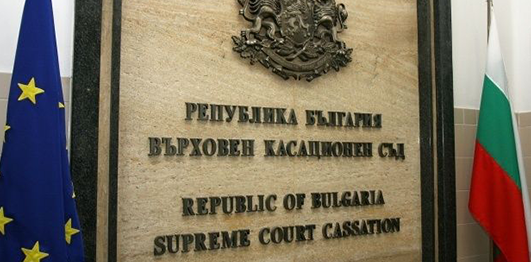
The Supreme Court maintains the required level of proof too high for loss of profit to be awarded in Bulgaria
On 13 January 2023, the Bulgarian Supreme Court of Cassation (“SCC”) issued Interpretative Decision No.3 (the “New Interpretative Decision”) which shows that the SCC continues to adhere to the very high standard of proof for loss of profit it has established a decade ago. The New Interpretative Decision reads “[t]he loss of profit caused by a tort must be proved for certainty [emphasis added], in the same way as must be proved the loss of profit caused by a breach of contract.” Ten years ago, the SCC stated with respect to loss of profit resulting from a breach of contract that: “[t]he assumption for existence of a loss of profit should build upon the proven possibility of undoubted [emphasis added] increase of the property of the injured person and it may not rely on a logical assumption of the natural occurrence of the increase” (SSC Interpretative Decision No.3/2012).
Fourteen of seventy supreme judges in total signed the New Interpretative Decision with descending opinion. Part of the judges with a descending opinion thinks that there is a logical contradiction in the reasoning of the New Interpretative Decision because, in contrast to the suffered loss, the unrealized profit has never come into existence since the tort has prevented this. Consequently, it is impossible to be proven that the unrealized profit should have inevitably and with certainty occurred. The unrealized profit may only be presumed that it should have occurred in the absence of the tort and only its high degree of likelihood may be proven. In other words, the descending opinion advocates for a balance of probabilities standard of proof, which means “more likely than not” and the authors of that opinion find support for their view in the old Bulgarian civil legal doctrine (Prof. Kozuharov) and state that the New Interpretative Decision sets out an absurdly high standard for proving loss of profit.
Before the issuance of the New Interpretative Decision, in its opinion addressed to the SCC the Supreme Bar Association asked the SCC to change its current position set out in Interpretative Decision No.3/2012 and to accept the following standard of proof: loss of profit should be established on the basis of the normal course of things or according to the established specific circumstances related to the concrete case, which substantiate the conclusion that without the occurrence of the tort or the breach of contract (as the case may be) the profit should have been realized with probability (i.e., the balance of probabilities test). In addition, the opinion of the Bar states that the current position of the SSC does not make difference between the criminal procedural law where there is a presumption of innocence, on one side and, on the other side, the civil procedural law where there is no presumption that the claim is unjustified and, therefore, the court decision should be reasoned with the evidence with prevailing weight (persuasion).
The descending opinion of the supreme judges and the opinion of the Bar are very close to the general rule under English law about the required standard of proof for loss of profit, which says that the claimant must prove the fact of the loss on the basis of the balance of probabilities. The standard does not rise to the “beyond all reasonable doubt” standard that applies in criminal matters in England. Under German law, the same standard is applied – a finding of a preponderant probability of the loss of profit. Likewise, under Swiss law absolute certainty is not necessary to prove a loss of profit.
Having in mind the above, one may not wonder why businesses chose, as a rule, English law, and often German law, to govern their cross-border contractual relationship, as well as the jurisdiction of English or German courts to solve potential disputes. Bulgarian law and, in particular, Bulgarian courts are chosen only as an exception, if at all.